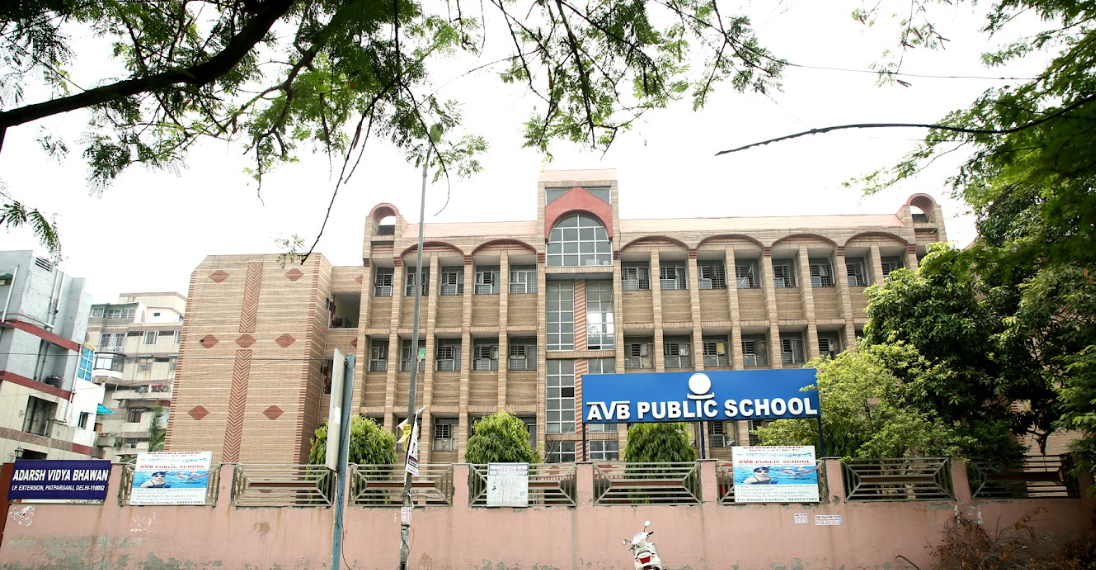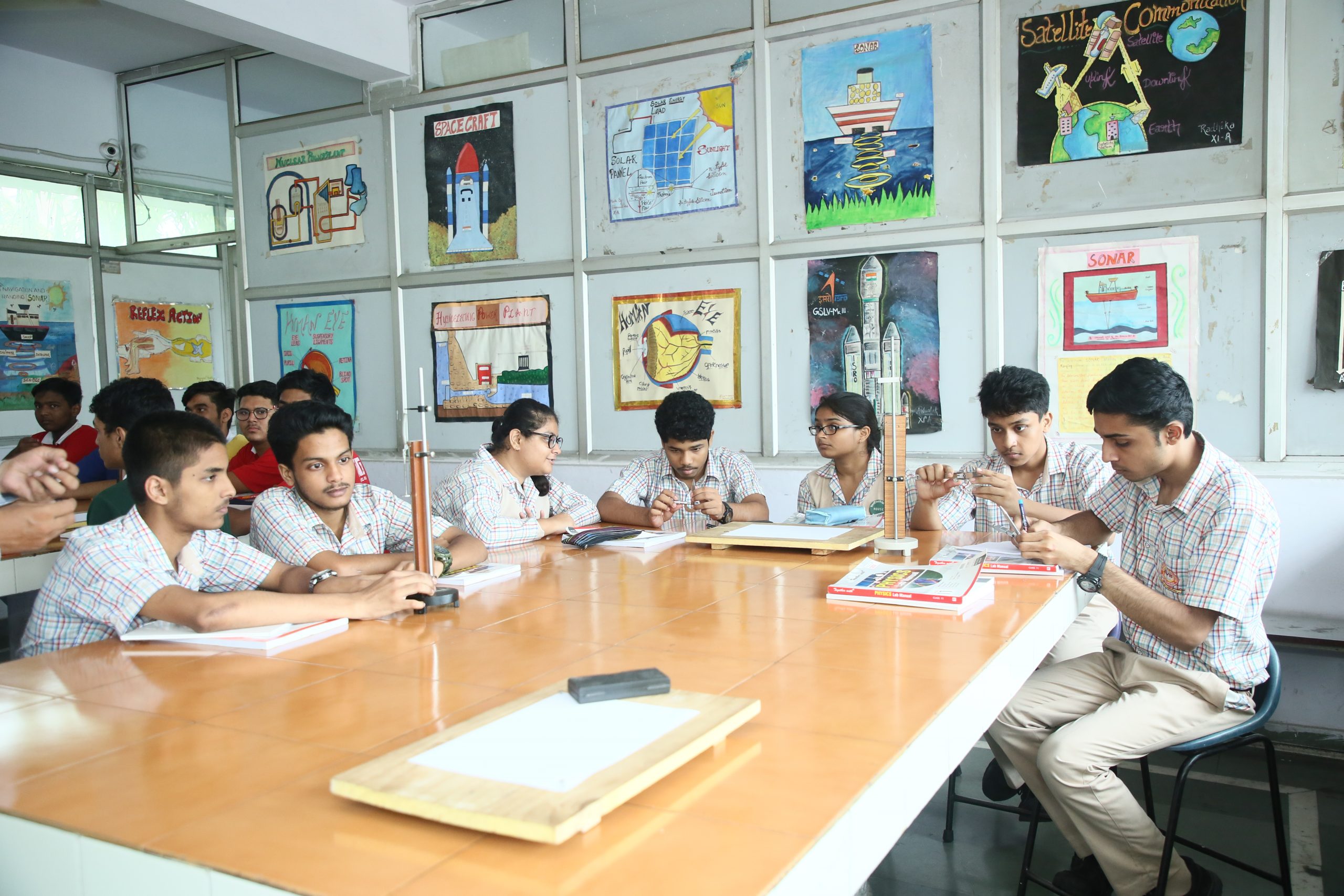At AVB Public School, experiential learning plays a key role in shaping students’ success. The school strongly believes in the power of “learning by doing.” This method encourages students to step outside the classroom and engage with real-world projects that make learning more meaningful. By blending traditional learning with hands-on experiences, AVB prepares its students to excel not only academically but also in real-life situations.
The Role of Experiential Learning at AVB Public School
Experiential learning is about more than just textbooks and lectures. It’s about making connections between theory and practice. Students participate in projects that allow them to explore and experiment. They get a chance to apply what they learn in the classroom to solve real-world problems. This method helps deepen understanding, improve critical thinking, and develop practical skills.
At AVB, this approach spans across all grades. Whether in primary or senior secondary classes, students are encouraged to take on projects that connect classroom lessons with real-life scenarios. This approach aligns with the school’s mission of developing well-rounded individuals ready for the challenges ahead.

Real-World Projects at AVB
One of the strongest aspects of AVB’s experiential learning is its focus on real-world projects. These projects are designed to be both engaging and challenging. They allow students to think critically and creatively while learning how to collaborate and work toward a common goal.
In subjects like science, students often work on projects that mimic real-world challenges. For example, they might design sustainable energy solutions or create models for water conservation. These projects don’t just teach scientific concepts—they allow students to understand how these ideas apply to the world around them.
Similarly, in social studies, students may take on projects that focus on current global issues. They might explore the effects of climate change on local communities or create awareness campaigns for social causes. These real-world projects encourage students to think beyond the classroom and engage with problems that matter.
Benefits of Experiential Learning
1. Active Learning:
Traditional methods often leave students as passive recipients of information. Experiential learning shifts this dynamic. Students become active participants in their education. They ask questions, seek answers, and test out ideas. This makes learning more engaging and relevant.
2. Critical Thinking:
Projects that require students to solve real problems push them to think critically. Instead of memorizing facts, they analyze, evaluate, and create. Whether they are solving a complex math problem or researching a social issue, students learn to think logically and apply their knowledge to real situations.
3. Collaboration and Teamwork:
Most real-world projects at AVB require students to work in teams. This fosters collaboration and helps students learn how to communicate effectively. They learn to respect each other’s ideas, delegate tasks, and solve problems together. These skills are vital for success both in school and later in life.
4. Real-World Skills:
Experiential learning doesn’t just focus on academics—it helps students develop skills that are important in everyday life. Time management, leadership, and organization are all crucial for success. These skills are practiced daily as students manage their projects and work toward completing them.
5. Boosting Confidence:
When students succeed in completing a project, they gain a sense of accomplishment. This boosts their confidence and shows them that they can achieve their goals. Completing a real-world project reinforces their belief in their abilities, encouraging them to tackle future challenges with determination.

Examples of Experiential Learning at AVB Public School
AVB Public School integrates experiential learning throughout its curriculum, providing students with opportunities to engage with real-world problems. Some notable examples include:
- Sustainable Farming Project: Students research sustainable farming techniques and work with local farmers to implement eco-friendly practices. They learn about organic farming and water conservation, gaining valuable insights into environmental sustainability. The project culminates in a presentation where students share their findings and suggest improvements for local agricultural practices.
- The AVB Newspaper: High school students get involved in creating the school newspaper. They take on roles such as reporters, editors, and designers. This hands-on project teaches them about journalism, writing, and media production while providing an outlet for creativity and self-expression.
- Community Outreach: AVB students regularly participate in community service projects. These could include organizing fundraising events, creating awareness campaigns, or helping local charities. Through these projects, students learn the value of giving back to society and develop a strong sense of social responsibility.
- Entrepreneurship Program: In this program, students come up with their own business ideas, create a business plan, and pitch their ideas to teachers and local entrepreneurs. They learn about market research, budgeting, and product development. This hands-on experience helps them understand the challenges and rewards of entrepreneurship.
How Experiential Learning Enhances AVB Public School’s Pedagogical Goals
At AVB, experiential learning is more than a teaching strategy—it’s an essential part of the school’s overall pedagogical approach. The goal is to create students who are not just good at solving academic problems but also equipped to solve real-world challenges. By offering experiential learning opportunities, AVB encourages students to think creatively, act decisively, and work collaboratively.
Experiential learning helps students develop a mindset that embraces challenges rather than shying away from them. This aligns with the school’s mission of fostering resilience, creativity, and critical thinking. Students who engage in real-world projects develop skills that are necessary for success in the workplace and beyond. They learn to adapt to changing situations, make informed decisions, and work with others to achieve a common goal.
Preparing Students for the Future
As the world becomes more interconnected and complex, it’s important for students to be prepared for the challenges they will face. Experiential learning at AVB gives students the tools they need to navigate an ever-changing world. Whether it’s understanding the impact of climate change or developing innovative solutions to everyday problems, AVB’s real-world projects ensure that students are not just ready for the classroom, but for life.
Conclusion
AVB Public School’s approach to experiential learning sets it apart. The school’s commitment to hands-on projects encourages students to engage deeply with the material they are studying. Through real-world challenges, students develop critical thinking skills, enhance their creativity, and learn to collaborate effectively. This approach not only makes learning more relevant and meaningful but also prepares students to succeed in an increasingly complex world.
As AVB continues to prioritize experiential learning, the school remains dedicated to providing a well-rounded education that develops both the mind and the character of its students. By bridging the gap between theory and practice, AVB ensures that its students are ready to take on the world with confidence and competence.
